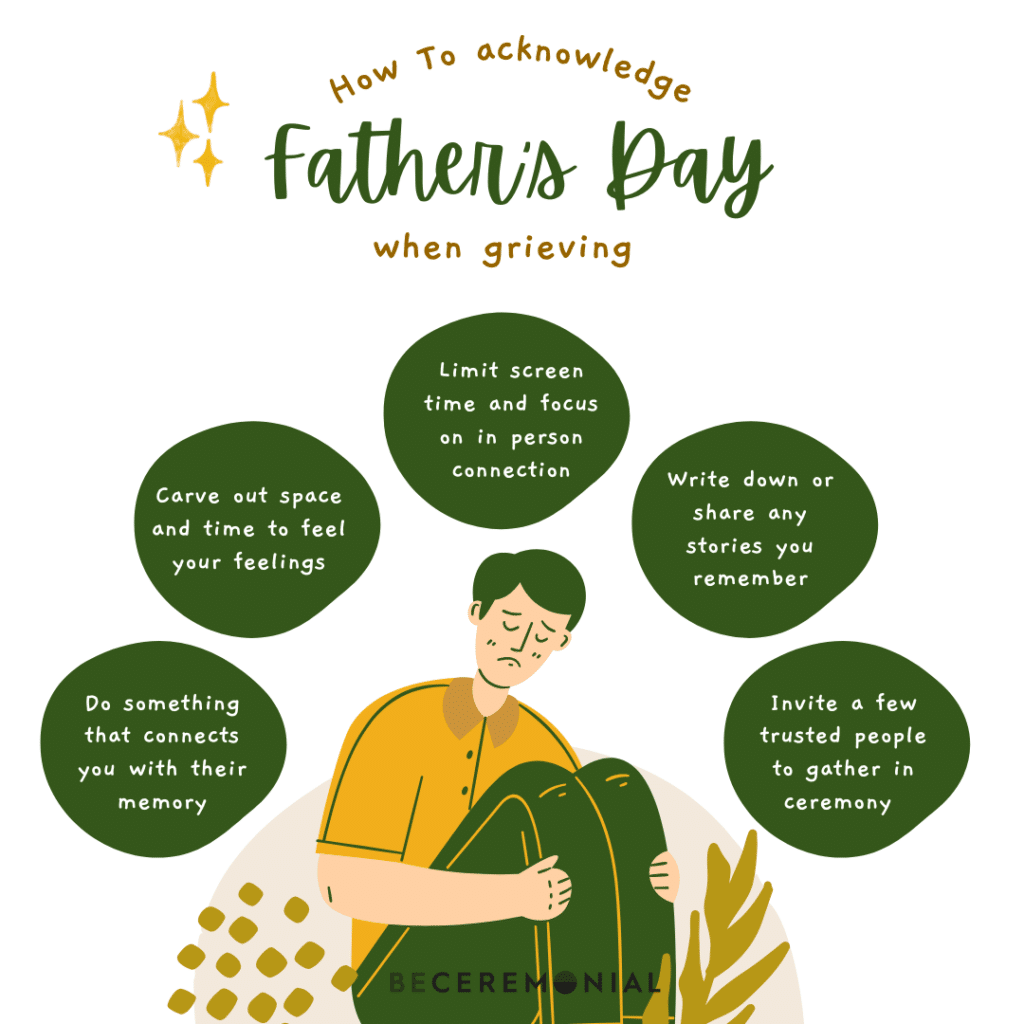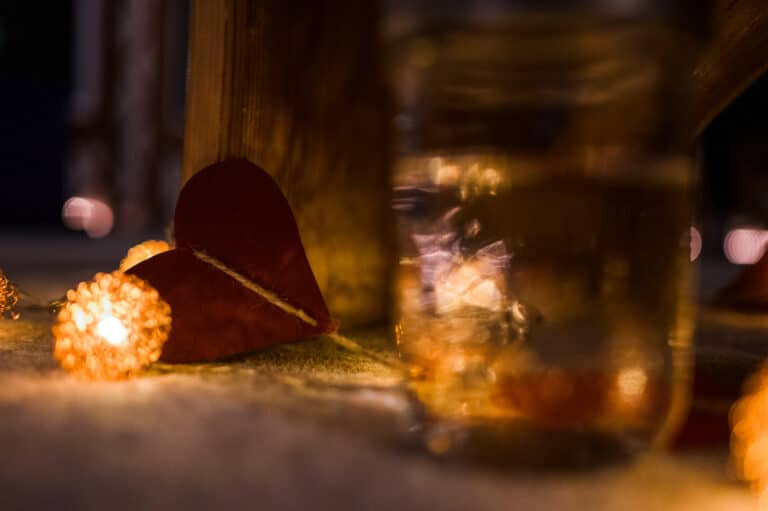Draw from our rituals in the Father Loss ceremony to help acknowledge a complicated Father’s Day in a way that’s meaningful and personal to you.

Father’s Day can be a minefield of emotions. For many, it’s a day of joy and celebration. But for others, it’s a stark reminder of loss, strained relationships, or the absence of a father figure altogether.
This year, if Father’s Day feels complicated, you’re not alone. Whether you have lost a father, lost a child, or have a complex relationship with fatherhood, here are some ways to create space for the swirl of emotions that may arise.
The Power of Ritual
Rituals and ceremonies can be powerful tools for navigating this difficult day. Rituals provide structure and a sense of control when emotions feel overwhelming. They allow us to acknowledge our feelings and create a safe space for grief, even amidst societal expectations of celebration.
Here are some ideas for creating your own Father’s Day ritual:
- Memory Box Creation: Gather photos, letters, or trinkets that remind you of your father. Spend time reminiscing and reflecting on your relationship, both positive and negative.
- A Letter to Your Father: Write a letter expressing your emotions, regardless of whether he’s present or not. This can be a cathartic release and a way to process unresolved feelings.
- Nature Walk: Take a walk in a place that holds significance for you and your father. Reflect on your connection to him and the lessons he may have imparted.
- Volunteer Your Time: Volunteer at an organization supporting fathers or children in need. This can be a way to honor your father’s memory while giving back to the community.
Making Space for All the Feels
It’s important to remember that Father’s Day doesn’t have to be a day of forced positivity. Allow yourself to feel the full spectrum of emotions – sadness, anger, even resentment. Bottling emotions can be detrimental to your mental health.
In the New York Times, Claire Bidwell Smith shares “You can celebrate and feel joyful, but you can also feel angry, hurt, grieving, betrayed. You don’t just have to pick one. Let yourself feel all of it.”
Here are some tips for navigating difficult emotions:
- Set Boundaries: It’s okay to limit contact with family members who might trigger negative emotions.
- Seek Support: Talk to a therapist, friend, or family member who can provide a safe space for you to express your feelings.
- Practice Self-Care: Indulge in activities that bring you comfort, like taking a swim, reading a good book, or spending time in nature.
Create a Father’s Day Ceremony
This Father’s Day, prioritize your well-being. Choose rituals that resonate with you, and allow yourself to adapt them based on any whatever arises. Give yourself permission to change course halfway through the day, listening to what you need versus what you think you should do.
Remember, there’s no right or wrong way to navigate this day. All feelings are valid.
Let’s move away from the pressure of a picture-perfect celebration and create space for honest expression and self-compassion.
William Turner Heath shared his story with Be Ceremonial, “Every Father’s Day since my relationship with my father ended, I have created personal rituals to let out some of the anger I feel in connection with my father. These rituals are part of my spiritual hygiene to work up the confidence to do hard things.”
Cody Richard also shared his story after losing his son Paris, “Even if you’re a private person, you have to find a way to process your grief, a way that works for you. I wish someone would have asked me how I was doing. We need to talk about it. We need more people sharing their stories and offering tools for grieving. That’s how we start a movement.”
Create your own ceremony that helps you acknowledge this complicated day. Our Father Loss ceremony is currently free for our community until June 17th, 2024.




